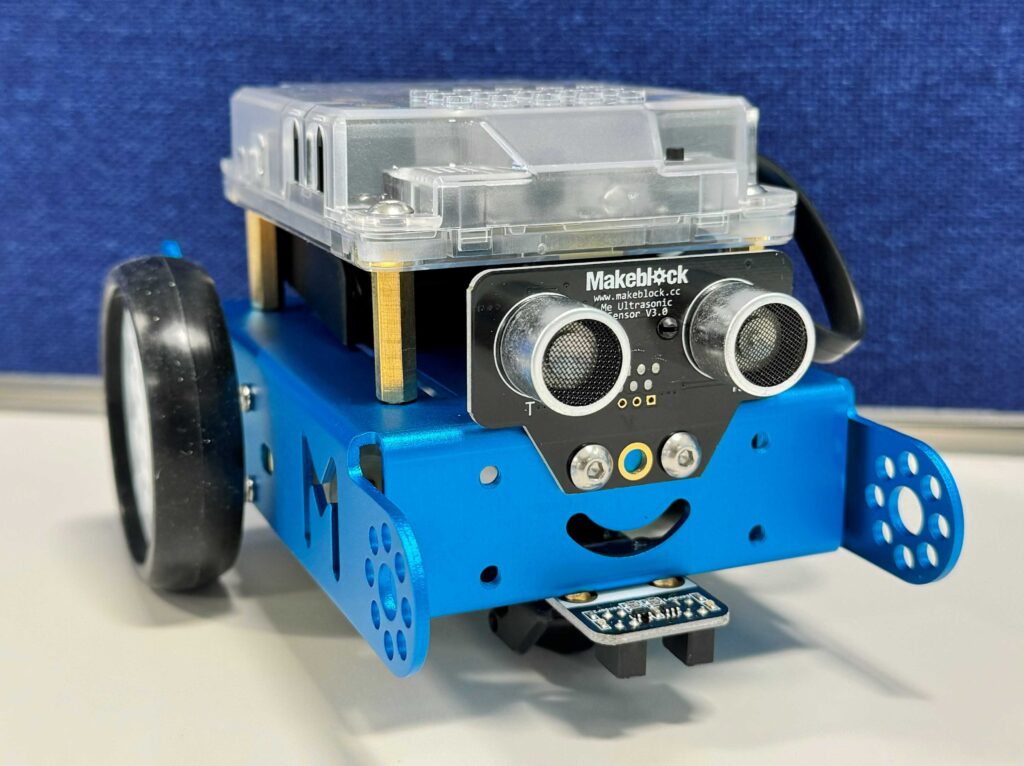KS2/KS3
Location: Wirral only
Ever wondered how robots move, think, and interact with their surroundings?
In our interactive workshop ‘Robots on a Mission’, your pupils become robotics engineers!
They’ll learn to code, discover how electricity and magnetism power motors, and see how ultrasonic sensors help robots navigate the world. Through hands-on activities, your class will work in teams to program their own robot to complete an exciting challenge!
Learning Objectives
By the end of this workshop, participants will be able to:
- Apply fundamental coding principles to program a robot, using algorithms and problem-solving strategies.
- Understand the role of electricity and magnetism in motors and how they generate motion in robotics.
- Explain how ultrasonic sensors work, using wave reflection to detect and respond to obstacles.
- Code, test, and debug a robot to complete a specific challenge.
- Collaborate in teams to solve problems and achieve a shared goal.
- Employ creativity and problem-solving skills in completing the challenge.
- Connect robotics to STEM concepts and explore their relevance to future careers.
Curriculum Links
KS3 Computing
Programming and Algorithms:
- Design, use, and evaluate computational abstractions that model real-world scenarios.
- Understand key programming concepts, including sequencing, selection, iteration, and the use of functions.
- Solve computational problems using decomposition, pattern recognition, and logical reasoning.
- Use debugging strategies to improve program functionality and reliability.
Data and Systems:
- Understand how physical computing devices, such as robots, process and respond to data from sensors.
- Explore the interaction between hardware and software, focusing on embedded systems.
KS3 Science
Electricity and Electromagnetism:
- Understand electric current as a flow of charge and its role in powering devices.
- Investigate the relationship between electricity and magnetism, including how electromagnetic fields are used to produce motion in motors.
Waves and Sound:
- Explore the properties of waves, including reflection, frequency, and wavelength.
- Examine real-world applications of sound waves, such as ultrasound and sensor technologies.
- Practical Applications of Science and Engineering:
- Engage with scientific methods, including hypothesizing, testing, and refining designs.
- Connect theoretical science principles to practical, hands-on applications in robotics and technology.

Audience: Key Stages 2 and 3
Remember: We’re closed on Mondays and Tuesdays during term time!
All visits include
- Two hours to explore our galleries
- Workshop for your class only
- Your very own Enabler, to greet and guide you, and make sure you have a great day!
- Dedicated lunch space

